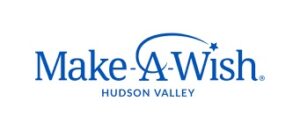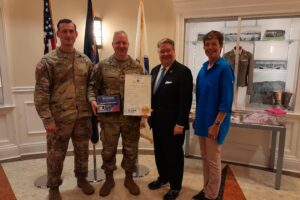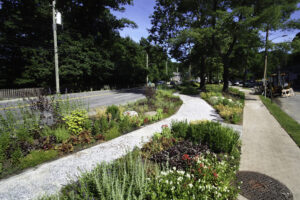 Having granted more than 3,000 wishes for children with critical illnesses since the chapter’s founding in 1986, Tarrytown-based Make-A-Wish Hudson Valley staff, volunteers and supporters know about the power of a wish and how it restores hope for local children battling critical illnesses.
Having granted more than 3,000 wishes for children with critical illnesses since the chapter’s founding in 1986, Tarrytown-based Make-A-Wish Hudson Valley staff, volunteers and supporters know about the power of a wish and how it restores hope for local children battling critical illnesses.
This year, in celebration of World Wish Day, Make-A-Wish supporters are invited to celebrate the power of a wish at Dutchess Stadium in Wappingers Falls, NY to rally around the tagline:
In partnership with the Hudson Valley Renegades, the High-A affiliate of the New York Yankees, Make-A-Wish will host a local World Wish Day Ambassador – wish kid Bryan and his family – to represent the more than 3,000 children who have had a wish granted by the chapter. Bryan will be throwing out the ceremonial first pitch and take part in on-field activities at the Renegades game that night. In addition, Kristine Burton, Make-A-Wish Hudson Valley President & CEO, and Bryan will spend time in the radio broadcast booth talking about the impact of a wish and how everyone has the power to restore hope with a wish.
Tickets can be purchased by visiting www.gadesgroups.com. The password is WISH . Tickets will be available for purchase through this link until Wednesday April 27th at 11:30pm, two days prior to the game.
New 2002 Wish Impact Study Released
Inspired by new research on the impact of a wish, World Wish Day 2022 focuses on how the hope that a wish provides can improve the emotional and mental well-being for children with critical illnesses, helping them to deal with, and overcome, their illness.
Today, Make-A-Wish is releasing new research in the form of the 2022 Wish Impact Study that provides quantitative data to lend credibility to the anecdotal feedback heard regularly from wish families. The powerful results of the Wish Impact Study add to a growing body of research demonstrating how wish-fulfillment promotes mental and emotional well-being for children and their families who are facing trauma stemming from a critical illness.
The online study surveyed three groups of individuals: parents of wish kids, wish alumni (i.e., former wish recipients) and doctors. The parents and alumni who were surveyed experienced a wish between 2009 and 2019, allowing them to look back and assess the lasting, long-term impact of the wish. In total, 3,411 people completed the survey.
Wish parents made up the majority of respondents with 93% of parents acknowledging that their family experienced traumatic stress due to their child’s critical illness. After their child’s wish was granted, 94% of parents recalled seeing improvements in their child’s emotional well-being, so much so that 91% of parents reported the wish gave their child a better chance of surviving their illness.
The wish alumni who completed the survey affirm the wish parents’ sentiments. 87% of alumni stated that they and their families experienced traumatic stress during their battle with a critical illness. Their wish played an integral role in counteracting the mental and emotional distress. More than 90% of the alumni agreed that the wish improved their quality of life, brought their family closer together, boosted their self-esteem and gave them hope for the future. Interestingly, 60% of the alumni indicated that they had fully recovered from their illness, helping to dispel the common misconception that children must have an end-of-life prognosis to be eligible for a wish.
Perhaps the most overwhelmingly positive feedback on the impact of a wish came from the pediatric doctors who participated in the study. More than 90% of the doctors said they witnessed their patients overcoming feelings of sadness, hopelessness, anxiety and depression after their wish. Furthermore, 95% of the doctors reported the wish improved their patients’ emotional and physical well-being. 75% of the doctors went as far as to state that a wish could improve a child’s medical outcomes.
“At a time when families are dealing with unplanned hospital stays and uncomfortable treatments, a wish can provide children with the chance to reclaim a piece of their childhood and a sense of control,” said Dr. Shoba Sriktantan, MD, FAAP and chair of the Make-A-Wish National Medical Advisory Council. “After coming back from a wish, many of my patients exhibit a renewed sense of hope and greater compliance with their treatment, which is why I – and many of my peers – consider a wish to be an important part of a child’s treatment plan.”
To learn more about the Wish Impact Study and find out how you can get involved, visit https://wish.org/impact-study






